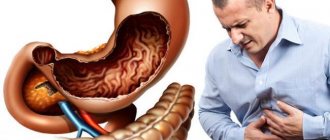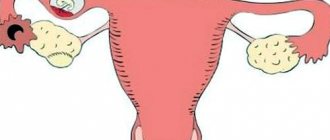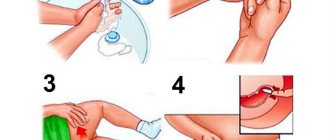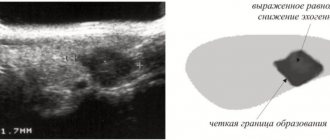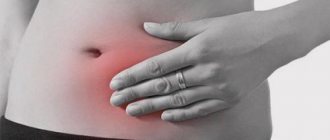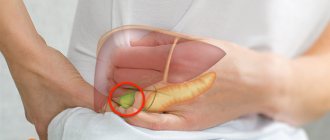Often, expectant mothers encounter this unpleasant phenomenon in the second and third trimesters of pregnancy. As a rule, such episodes occur in the evening and at night, when the woman goes on vacation.
Symptoms include numbness and tingling in the legs, and when you try to move your legs or stretch, the muscles suddenly twist with a sharp pain.
In addition to painful sensations, cramps can cause a deterioration in the general well-being of the pregnant woman, since excessive innervation of the contracted muscles can provoke uterine hypertonicity. Therefore, timely treatment and further prevention are so important.
But first you need to clearly know the causes of seizures.
Lower back pain
Your baby is getting heavier and the back muscles are having a hard time. This is the main cause of lower back pain. As the center of gravity moves forward, you want to return it to its place yourself, leaning slightly back. But in reality, you are only putting additional and incorrect stress on your back muscles. As a result, muscle tension and discomfort appear. Abdominal (abdominal) muscles stretch and weaken during pregnancy, so the back muscles “do double duty.” The connective tissues that hold bones in the right places relax under the influence of pregnancy hormones. This primarily concerns the ligaments in the pelvic area, because the body is preparing for childbirth.
But you can fight back pain - for example, by maintaining correct posture. There are other ways.
- Wear low-heeled shoes and use good insoles.
- Buy a high-quality hard mattress.
- Squat down rather than bend over.
- Sleep on your side with pillows under your stomach and between your legs.
- Wear a maternity bandage.
Regular exercise strengthens your back muscles. The effect will not be felt immediately, but then your legs and back will thank you more than once. Talk to your healthcare provider to find the best exercise routine for you. Here are some general tips for exercising during pregnancy. As soon as the baby is born, the load on the back will ease and the pain will go away quite quickly.
Cramps during pregnancy
Cramps during pregnancy are a common ailment both in the later stages, when the body is preparing for contractions, and during the first month of pregnancy (in a milder form). In the first two weeks after conception, a fertilized egg “makes its way” to the uterus. This process may be accompanied by mild cramps and minor bleeding. This is implantation bleeding. Sharp pain in the pelvic area, similar to muscle spasms, is caused by stretching of the ligaments around the uterus.
At the end of the second and third trimester, Braxton Hicks training contractions begin. They intensify as labor approaches. Typically, Braxton Hicks contractions will stop if you move around or rest. However, if they become stronger and more frequent, it may be a sign that labor has begun. If you have even the slightest doubt, consult your doctor. Braxton Hicks contractions can be uncomfortable, but they are completely normal during pregnancy. This is how the body prepares for the most important day.
Timing of the threat of pregnancy, timing of the threat of miscarriage
The threat of miscarriage most often occurs during
5-6 weeks of pregnancy 7-8 weeks of pregnancy 10-12 weeks of pregnancy 15-16 weeks of pregnancy 20-21 weeks of pregnancy 24-25 weeks of pregnancy 26-28 weeks of pregnancy 30-31 weeks of pregnancy 32-34 weeks of pregnancy
During these periods of pregnancy, PHYSIOLOGICALLY (provided for by the natural characteristics of human physiology), the tone of the uterus increases significantly and there is a threat of miscarriage, the threat of termination of pregnancy, and the threat of premature birth.
Toothache and tooth sensitivity
During the second trimester, gum sensitivity increases. This is especially noticeable when you brush your teeth and floss. The gums sometimes even bleed slightly. Indeed, pregnancy also affects the condition of the oral cavity. Pregnancy gingivitis is one of the milder forms of gum disease. Its symptoms are swelling, redness, bleeding and inflammation. In addition, pregnant women often experience periodontal disease, an infectious gum disease that affects the soft tissues and bones of the jaw. Toxicosis, typical of early pregnancy, can cause tooth erosion and caries.
Despite gum inflammation, it is important to brush your teeth thoroughly twice a day and continue to floss. If you haven't been to the dentist for six months or have felt any discomfort in your mouth, then it's time to make an appointment. Rinsing with salt water and switching to a brush with softer bristles will relieve some of the discomfort.
Ultrasound in the fifth week of pregnancy
Ultrasound examination at this time is rarely prescribed. The fetus is only 1–3 mm in size and is too small for ultrasound to evaluate any features of its growth and formation, including malformations.
An ultrasound examination in the fifth week may:
- confirm pregnancy;
- determine the location of the fetus (in the uterine cavity or outside it);
in combination with hCG indicators, confirm a developing pregnancy or a frozen one (depending on whether the ultrasound signs correspond to the current period).
Headache
A sharp surge in pregnancy hormones - estrogen and progesterone - triggers chemical processes in the brain. And this can cause headaches. Even if everything goes away after taking a painkiller, it is still better to consult a doctor. Aspirin is contraindicated in pregnant women, so you will be prescribed medications that you can take during pregnancy. Here are some more ways you can combat headaches.
- Apply a cold compress to your head.
- Master relaxation techniques.
- Avoid anything that can trigger a headache: foods and smells that have already caused a migraine.
- Get more sleep.
- Give yourself light physical activity.
- Try not to be nervous.
- Maintain proper diet.
What external changes occur to the mother?
As a rule, in the fifth week of pregnancy, the body is still reluctant to give up its “secret”; the woman’s outwardly interesting position is not very noticeable, even in the photo. But you should still be prepared for some changes that may accompany a woman from the first weeks.
Belly in the fifth week of pregnancy.
The size of the fetus is still too small for the uterus and abdomen to expand. Therefore, at this stage, the figure of the expectant mother retains the same proportions as before pregnancy. But progesterone, which is responsible for the onset and maintenance of pregnancy, can cause a slight protrusion of the abdomen. This is due to the fact that this hormone slows down intestinal motility, as a result of which gases can accumulate in it. But a small nutritional correction and exclusion from the menu of foods that cause flatulence can quickly return intestinal function to normal.
Breasts in the fifth week of pregnancy.
By this time, in some women, the mammary glands may increase by 1–2 sizes. And this is the only external change that is observed in the fifth week. But women whose breasts have retained their previous size also note some changes indicating that the body is already preparing to feed the baby. This is an increase in the sensitivity of the mammary glands, enlargement and darkening of the areolas, engorgement of the nipples.
Heartburn and indigestion
During the first and third trimesters, the valve that separates the esophagus from the stomach relaxes under the influence of pregnancy hormones. Because of this, stomach acid enters the esophagus and causes heartburn. To prevent heartburn, you should not lie down for three hours after eating. That's why you need to have dinner early. If you still suffer from heartburn at night, you can try raising the head of the bed. To do this, you need to place a cushion between the spring base and the mattress. Pillows alone will not be enough.
Eliminate fried and spicy foods, citrus fruits and chocolate from your diet. These foods cause heartburn. Eat often, but little by little.
How does a baby feel when there is a threat of premature birth?
We can only guess the answer to this question based on physiological data.
A pregnant woman and her fetus share a common circulatory system. Stress hormones (cortisol, adrenaline, prolactin), entering the general bloodstream, cause certain reactions from the central nervous system (brain and spinal cord), muscular system and other organs and systems.
If a pregnant woman is scared, experiencing pain, uncertainty about the future, her heartbeat and breathing become more frequent. The child may experience similar emotions and physiological reactions: FEAR, pain, tachycardia (rapid HEARTBEAT).
Increased uterine tone fixes the fetus and LIMITS its freedom of movement. Restriction of freedom of movement can cause some discomfort in the fetus.
Calf cramps
Calf cramps are one of the most common physical ailments during the second trimester of pregnancy. They also happen during the third trimester. Painful muscle contractions in the lower leg or foot occur at night, and their cause is still unclear.
However, calf cramps during pregnancy can be managed. Light stretching before bed and regular exercise will help. It is important to stay active throughout your pregnancy and drink enough fluids. Comfortable shoes and good insoles will also help. If you wake up with a cramp, stretch the muscles by pulling your foot toward you and then back. Give yourself a light massage or warm foot bath.
Lower abdominal pain
During pregnancy, the uterus enlarges, and the ligaments that secure it stretch. These ligaments are called round ligaments. Their stretching causes sharp and short bursts of pain in the lower abdomen, similar to cramps. Sometimes the pain does not go away immediately and even radiates to the other side of the abdomen. There is nothing to worry about here - the baby is growing, and this causes a number of painful symptoms.
You can also fight pain in the lower abdomen. It's best to move more slowly than usual, avoid getting up abruptly from a bed or chair, and generally avoid any sudden movements. A warm bath or going to the pool is also a good option. This way you will at least temporarily relieve the load on the round ligaments. You can also use a special maternity belt or abdominal band.
Pinched nerve
The baby is growing, and your weight is increasing, water is retained in the body - because of this, the nerve pathways increase and put pressure on the nerve endings. As a result, the nerve is pinched, which is put under pressure by all the tissues surrounding it: bones, muscles, tendons and cartilage. Pinching occurs in any part of the body, and the pain sensation depends on it. Carpal tunnel syndrome causes numbness in the fingers or the entire palm. And pinching in the back, as with an intervertebral hernia, on the contrary, causes acute pain. All you can do is try to relax and unwind. If the pain persists, consult a doctor.
Swelling of the feet and ankles
In the last months of pregnancy, the feet and ankles often swell. The volume of circulating blood in the body increases, and the enlarged uterus puts pressure on the veins. As a result, excess fluid is forced out of the veins into adjacent tissues, and this is how swelling appears. Add to this the influence of pregnancy hormones and you get swollen feet. After childbirth, the swelling will stop, but there are some things you can do now.
- Lie down and raise your legs up.
- Sleep on your left side to reduce pressure on the veins that carry blood back to the heart.
- Wear compression stockings.
- Give yourself daily physical activity.
- Wear loose clothing.
- Take cool foot baths.
- Walking on the bottom of the pool or simply standing in it will promote compression and improve blood circulation in your legs.
Varicose veins and hemorrhoids
Some women develop varicose veins during pregnancy. After all, the total volume of blood in the body increases, and the outflow of blood from the legs to the pelvis, on the contrary, decreases. The result is strong pressure on the veins. Under the influence of progesterone, they increase, and this is another reason for the occurrence of varicose veins.
Veins can expand even inside the vagina. This may cause discomfort in the lower rectum and around the anus. This is what is called hemorrhoids. Changes in hormonal levels and blood circulation are beyond your control, but you can still fight varicose veins. Here are our recommendations:
- Sit down and raise your legs higher than your body whenever possible.
- Do not stand in the same position for a long time.
- Do not sit cross-legged.
- Carefully monitor your weight. Find out how to properly gain weight during pregnancy.
- Wear special stockings and make sure that the elastic bands do not put pressure on the knees or thighs.
- Drink enough fluids and add fiber-rich foods to your diet to prevent hemorrhoids.
Preventive measures
First of all, you need to review your diet: it should be enriched with foods rich in magnesium, potassium, calcium, vitamins B, C and D. You should be careful with diuretics taken to reduce swelling.
It is worth increasing mobility and physical activity, lengthening walks in the fresh air. Special physical education classes will be useful: yoga or gymnastics for pregnant women.
Wearing compression tights and avoiding heels higher than 4 cm during this period of life will also prevent the development of seizures.
In conclusion, we can say that cramps are a serious condition that can be easily prevented by following the recommendations of the gynecologist in charge of pregnancy and simple preventive measures.
Abnormal Pain During Pregnancy: It's Time to See a Doctor
It is normal to experience discomfort and even pain during pregnancy. But sometimes they can be symptoms of serious diseases. For example, if pain in the upper abdomen or shoulders is accompanied by headaches, you should consult a doctor to rule out the possibility of preeclampsia. And when during the first trimester you feel severe pain in the abdomen and pelvis, accompanied by vaginal bleeding, it is better to check whether this is a symptom of an ectopic pregnancy. Therefore, if you have any suspicions or severe discomfort, consult a doctor immediately.
Every woman experiences discomfort and pain during pregnancy—and even more than once. As a rule, this is completely natural, and when the baby is born, everything will pass. After all, pregnancy is a preparation for happy motherhood, and there is nothing more beautiful than this.
Treatment of seizures in pregnant women
First, it’s worth remembering first aid. A set of measures that should be carried out immediately when spasmodic contractions of the calf muscles occur helps relieve pain:
- A warming and then a relaxing massage will help relieve spasms. You need to forcefully rub the contracted muscle with pinching movements, and then lightly in a circular motion to relax it.
- A good result is obtained by pulling the sock towards you, and the pain goes away almost immediately, as there is an immediate weakening of muscle tone.
- Walking barefoot with emphasis on the heel will help restore blood circulation.
After the pain subsides, you need to place your legs on an elevation to reduce swelling. Drug treatment involves taking magnesium, vitamin B6, calcium and potassium. In cases where seizures are a symptom of a disorder of the endocrine system or central nervous system, consultation with an endocrinologist will be required: a specialist will prescribe appropriate medications. Also, a doctor monitoring the condition of a pregnant woman can prescribe physiotherapeutic procedures, for example, electrophoresis, prescribed for gestosis.
And don't neglect prevention.



